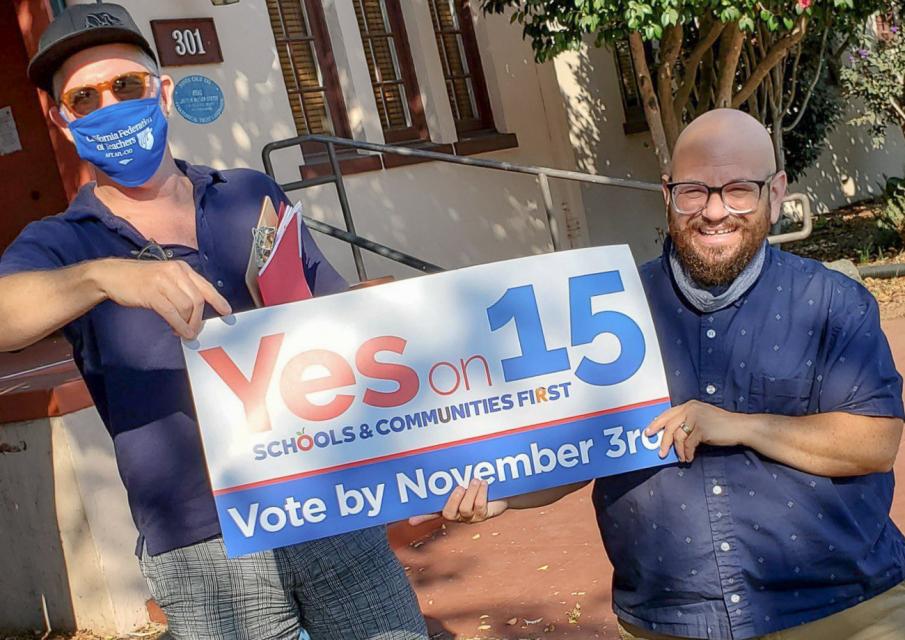California is at an educational crossroads made dire by the coronavirus pandemic, and Proposition 15 is an important step in getting California back on the right track.
COVID-19 has not only ravaged the health and lives of countless Californians — it has also ravaged state revenues, with Governor Newsom himself acknowledging overall state revenue declines being in the “tens of billions.”
In terms of education funding, the Legislative Analyst’s Office is estimating a conservative drop in funding for 2021-22 of approximately $11.2 billion for schools and community colleges, with similar shortfalls to continue into the following year. This would constitute at least a 15 percent drop in overall funding, and these projections themselves were made in May, before the continued severity of the pandemic had been fully realized.
While the full impact of these cuts cannot be fully known, the effects on adjunct instructors will be severe. While classified employees will also experience a large brunt of the cuts, any cuts in class sections offered will be primarily made to those sections taught by adjunct instructors, who are considered by the state to be “at will” workers.
Further, as adjuncts are paid less, and receive lesser to no benefits in comparison with their full-time colleagues, more adjunct sections will have to be cut to deal with the loss of funding than if full-time sections were cut. What this points to are job losses for adjuncts that would clearly exceed 15 percent, and it could even be double that or more.
The options to address the deficit and stave off these cuts are limited. While the U.S. House of Representatives has passed a $3 trillion HEROES Act, which would provide $1 trillion in aid or state and local governments, the legislation has stalled, and talks on compromises measures have failed. With the outcome of the election unknown, the future of federal aid to deal with these losses is highly uncertain.
However, Proposition 15, the CFT-supported proposition to end tax loopholes on corporate commercial properties valued over $5 million, is a viable option. In 1978, driven by a sharp increase in residential property values, Californians voted for Proposition 13 — a measure which set property taxes on all property, both residential and commercial, at roughly 1 percent of their assessed value in 1976, or at a later time of purchase, when a property’s value can be reassessed.
While Prop 13 did provide tax relief for older homeowners, it has also allowed large corporations whose property holdings are stable, to continue to pay property taxes at extremely low levels in terms of their current assessed value, all while many of them have been enjoying larger-than-ever profits during the pandemic. Further, corporations have found ways to duck this reassessment and maintain low tax rates, selling off property in part through a web of shell corporations, and have it essentially change hands without ever triggering a reassessment, thus locking in their low tax rate.
Proposition 15, if passed, would leave residential property tax rates untouched. Further, it would not touch the tax rates on current commercial property assessed at less than $5 million in current value. Most importantly, what it would do is provide desperately needed funding. It is estimated that Prop 15’s passage would lead to at annual increase in education and local services funding of up to $12 billion per year. For community colleges, this would mean an increase of up to $506 million annually.
This of course will not fully address the funding shortfalls community colleges will a face in the next few years, but it will lessen them. Moreover, when the pandemic and the funding shortfalls created by it end, Prop 15’s increased funding to education will endure. This will provide a way to not only help preserve adjunct jobs, but to improve adjunct pay, working conditions, and the opportunity for more full-time positions.
It is vital for adjuncts to vote for Prop 15, not to simply protect their positions, but to protect California public education.
— By Geoff Johnson, Assigning Editor, Part-Timer




